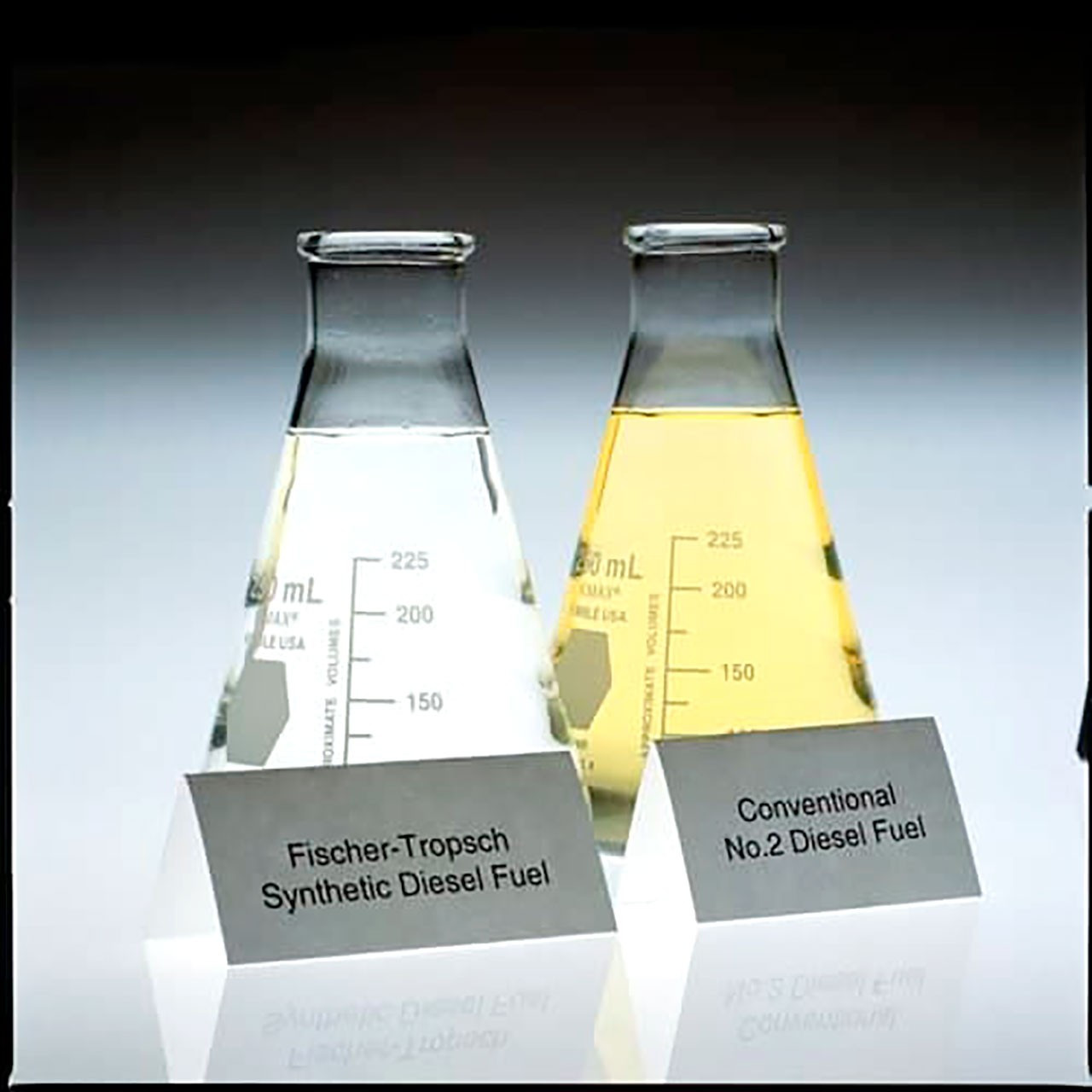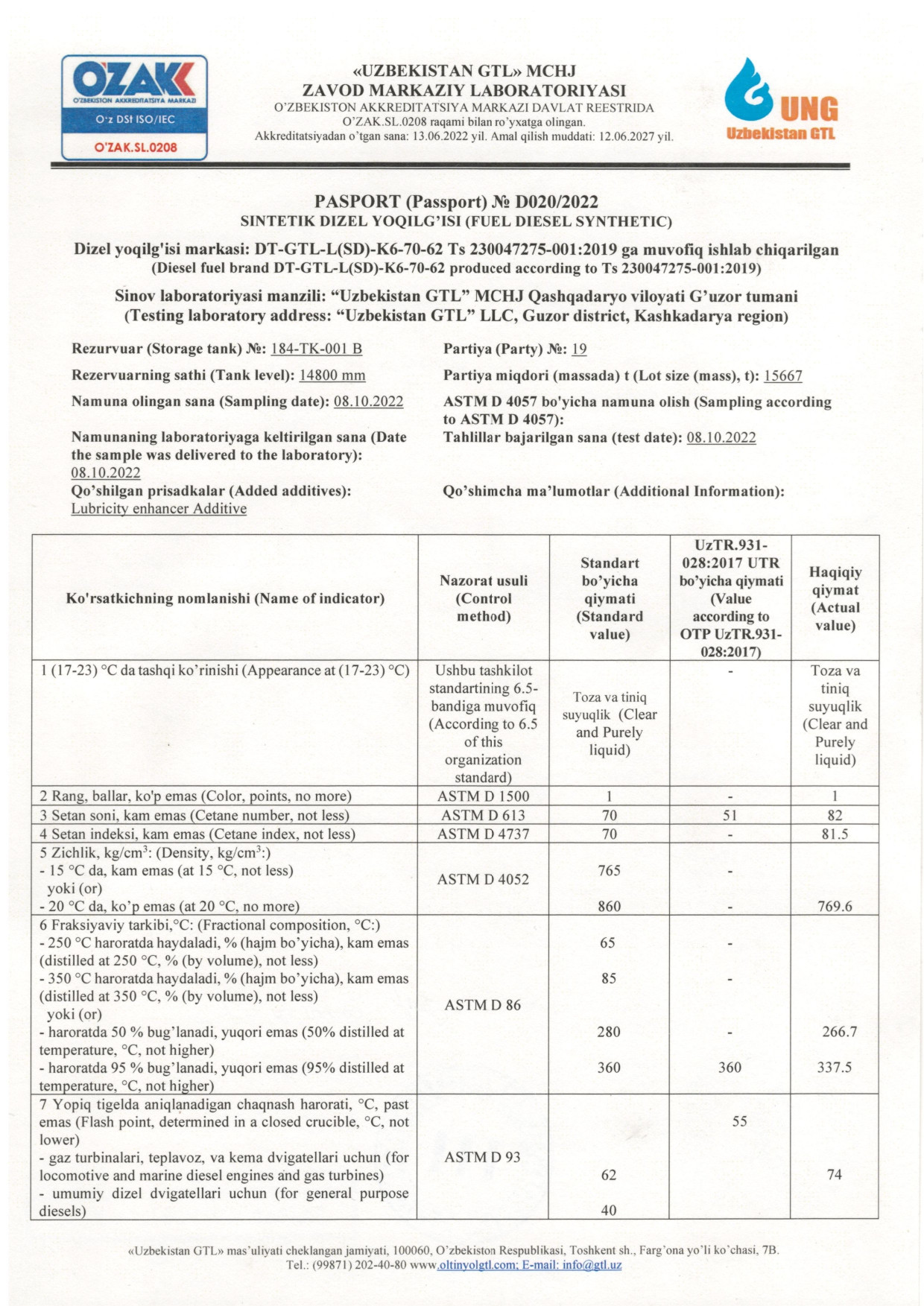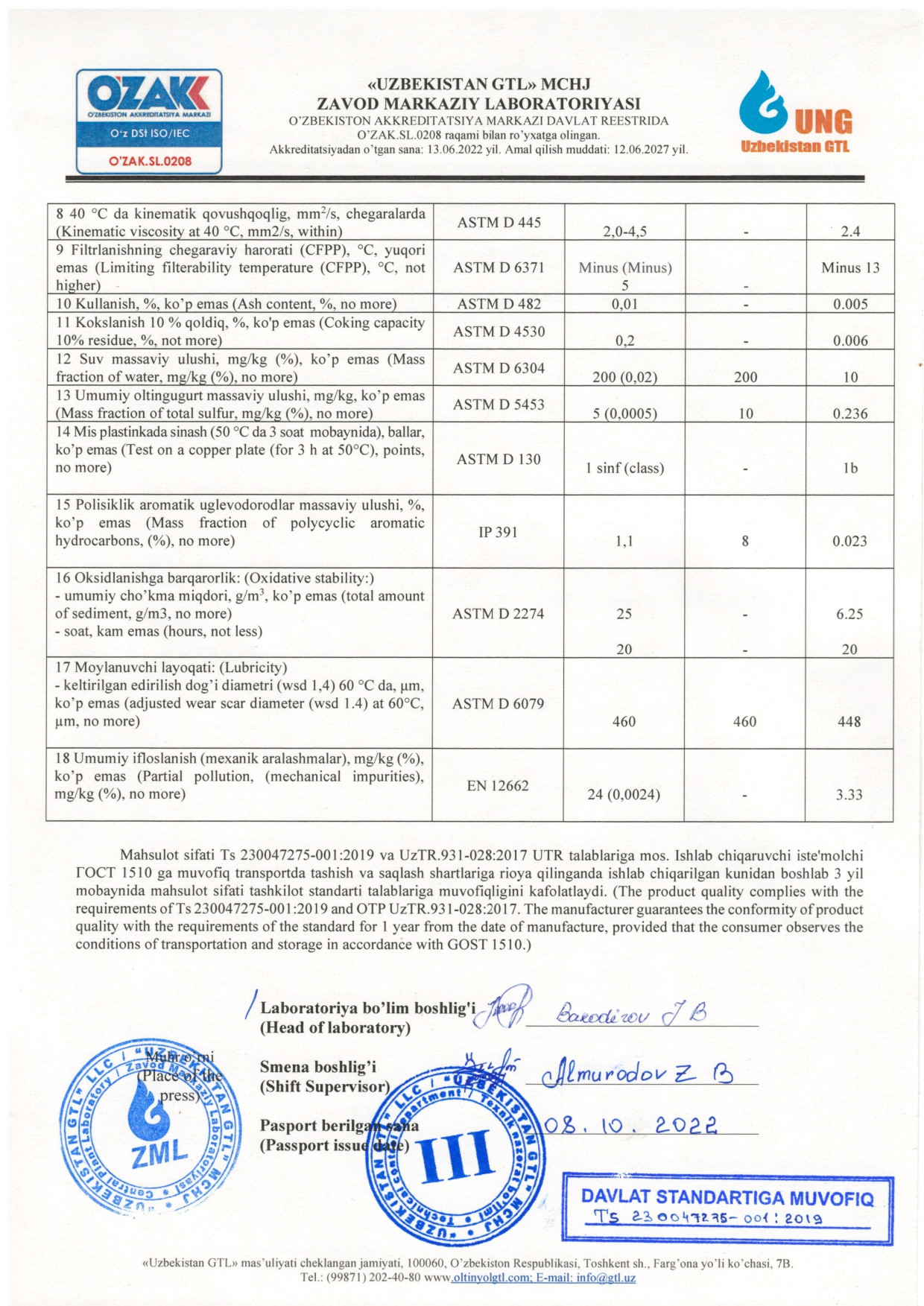Future belongs to Uzbekistan GTL’ fuel
In the modern world, diesel on merit takes one of a lead positions in the industry and synthetic diesel (hereinafter referred to as GTL fuel) produced by Uzbekneftegaz GTL Plant is also no exception. It has been widely used thanks to its advantages, among which the priority is given to high environmental and operational properties.
GTL fuel is a fully synthetic, high-quality, medium-distillate fuel produced from natural gas using the patented Sasol technology. This fuel is considered a premium class fuel and has the following features:
GTL Fuel:
In honor of Earth Day (April 22), Yale Center for Environmental Law and Policy prepared an Environmental Performance Index (EPI), where Uzbekistan ranked 4th out of 20 countries with the worst air quality. Using 100% GTL fuel in diesel vehicles, such as public or agricultural transport, can contribute to better air quality in the region by reducing local emissions.
GTL diesel possesses high technical parameters and low air emissions with almost zero sulphur content. GTL diesel can be used in existing diesel engines, either in a neat form or as a blend stock. GTL diesel reduces some pollutants by up to 70% compared to standard crude-derived diesel and its cleaner and more complete combustion means less buildup of deposits in the engine.

According to research by the University of Texas Agriculture and Mechanical Engineering in Qatar, using GTL fuel resulted in significant reduction in exhaust emissions[1].
Below shown the range of changes in exhaust emissions when using GTL fuel as compared to traditional fuels.
[1] 04/05/2016 - Single Cylinder GTL ENGINE: An Experimental Comparison between Traditional Diesel and GTL Diesel on Single Cylinder Engine - Muzammil Khan, Reza Tafreshi, Ahmad J. Mokahal, Mohamed Tarek Mohamed, Mohab Yasser Hanbal, and Jayson Elturk
|
Emissions |
% changes |
|
CO |
-36,0 |
|
CH |
-47,0 |
|
NOx |
-35,0 |
|
SO2 |
-4,20 |
|
Mean |
-30,55 |

Almost zero sulfur content in GTL fuel is an advantage when using advanced exhaust gas post-treatment technology, which also ensures longer service life of vehicle's parts, oil and accordingly, prolong vehicle's maintenance period.
According to extensive tests conducted by Sasol, GTL fuel showed excellent thermal stability, cleaner and more efficient combustion. The higher cetane number in GTL diesel gears- up engine's start, lowers engine noise, and improves engine thermal stability[1].
[1] 6-9.12.2015 – “IPTC-18565-MS. Environmental Footprint of GTL Fuel Usage” - J. H. Viljoen ; G. F. von Berg.

Another advantage of GTL fuel is its full compatibility with conventional diesel fuel, which can ensure its use in existing diesel vehicles and fuel delivery systems with no need for any modification (drop in). The fuel provides easy switching from one diesel to another[1].
It is also important to note that this fuel is freely biodegradable and can be suitably used in environmentally sensitive areas.
GTL fuel can be used in any vehicles and any equipment with diesel engines.
[1] DIN EN 15940:2019 Automotive fuels – Paraffinic diesel fuel from synthesis or hydrotreatment – Requirements and test methods; German version EN 15940:2016+A1:2018+AC:2019

Synthetic diesel fuel produced by Uzbekneftegaz GTL Plant will be supplied for the needs of domestic consumers of the Republic and will be sold through open tradings at Uzbek Commodity Exchange. The start of GTL diesel production will strengthen Uzbekistan’s fuel independence and provide the domestic market with high-quality premium products.

 This reduces engine wear, extends engine life, and increases the interval between lubricant replacement. GTL diesel can also be blended with standard crude-derived diesel, which significantly improves the overall quality of the fuel without the need for costly refinery refits.
This reduces engine wear, extends engine life, and increases the interval between lubricant replacement. GTL diesel can also be blended with standard crude-derived diesel, which significantly improves the overall quality of the fuel without the need for costly refinery refits.
Quality characteristics:
• high cetane number
• low sulfur content
• low content of aromatic compounds
• lack of distinct smell
|
Property |
Unit |
K-4* |
K-5* (EN 590**) |
GTL diesel (EN 15940***) |
|
Cetane number |
number |
Min 51 |
Min 51 |
Min 70 |
|
Sulphur content |
mg/kg |
Max 50 |
Max 10 |
Max 5 |
|
Total aromatics content |
% |
Min 11 |
Max 8 |
Max 0.5 |
Application:
• in all diesel engines
* environmental class of fuel according to the General Technical Regulations
** European Standard for Conventional (Petroleum) diesel fuel
*** European standard for GTL synthetic diesel fuel
©2021. All rights reserved. "Uzbekistan GTL" LLC.
Site developed by: Light Solutions